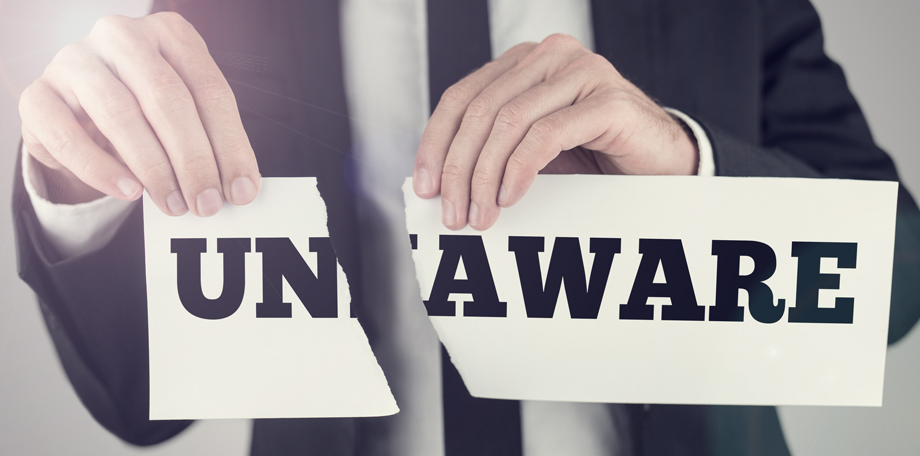We’ve all worked with someone who tends to attract drama.
“How am I supposed to meet this deadline? I just got the documents to review yesterday, and I already have a full plate.”
“Why did I get assigned this task? I always get the worst jobs.”
“She’s upset I’m late again? The bus was late, and then I had to wait forever for the elevator!”
Sound familiar? These are all displays of “victim mentality,” which has the potential to sabotage careers, even lives. When you come to the realization that you exhibit a victim mentality more often than you are conscious, it can be quite unsettling. It’s the most common feedback we get from participants in our MindMastery™ workshop over the years; that they’ve been blind to how often they frame events in this way and how deep the pattern is.
What is a Victim Mentality?
Victim mentality is a psychological term that refers to someone with an external locus of control. They do not believe that they are in control of their successes or failures, and often feel helpless or without blame. They are driven by pessimism, fear and anger. In extreme cases, they may even believe others are deliberately out to hurt them. At the other end of the spectrum, someone with an internal locus of control believes that they control their own destiny and will attribute their success and failures to their own actions.
Someone who embodies a victim mentality is often looking for attention or sympathy. They avoid asking for what they need and take very little action to improve their situation or solve their problems because they feel it would be futile. They either feel powerless to change things, or it is a conditioned habit. With this mindset, there will always be a disproportionate number of challenges that come their way because they aren’t dealing with the events in their life effectively.
To put it simply, having a victim mentality means that you blame other people and circumstances for your own unhappiness and/or lack of results.
How Self-Victimization Happens
Victim mentality is an acquired personality trait, meaning that it is a reaction to one’s own experiences in life. While some victims have unfortunately, in fact, been victimized in their lives, there is a big difference between being the victim of a tragic event and living life with a victim mentality. Someone with a victim mentality has a “woe is me” outlook, feels life is unfair to them and thinks that other people or events impede them. They are unwilling or unable to take responsibility for their happiness, success or well-being.
Benefits of Being a Victim
The reason why so many people adopt a victim mentality is that it often comes with many perks. It can be easier to coast through life when:
- You don’t take responsibility for anything.
- You get a lot of attention.
- Other people feel sorry for you.
- Others are less likely to criticize you.
- You get what you want.
- People listen to your stories.
- There’s always something interesting (i.e. some kind of drama) going on in your life.
- You feel you have a right to complain.
Dealing with Victim Mentality in the Workplace
If you work with someone with a victim mentality, you may have noticed that they often wait for others to tell them how to do something. They tend to lack initiative, exhibit a lot of indecision and they aren’t engaged or proactive. This person may constantly complain about their career situation and often claims to be unclear of their roles and responsibilities. They wait for their leader to give them clarification rather than being proactive and seeking out the answers that they need.
Leaders may find it frustrating to deal with colleagues and direct reports who think of themselves as victims of the universe. A victim can drastically impede productivity in the workplace and get in the way of the team or organization achieving their objectives. Trust, morale and strong interpersonal relationships in their ecosystem can also suffer.
A Stanford University study reported in the Journal of Personality and Social Psychology found that playing the victim leads to a sense of entitlement and to narcissistic or selfish behavior.
Researchers divided 104 people into two groups. One group was told to write a short essay about a time when they felt bored. The other group was told to write about “a time when your life seemed unfair. Perhaps you felt wronged or slighted by someone.” After writing the essay, the participants were interviewed and asked if they wanted to help with a simple, easy task.
Those who wrote about being wronged were 26 percent less likely to help and were rated by the researchers as feeling 13 percent more entitled.
In a separate experiment, those in the unfairness group were 11 percent more likely to express selfish attitudes. As a side note, the researchers also found the victims were more likely to steal the experimenters’ pens.
Pen-stealing aside, this study illustrates that victim mentality can manifest itself in thinking that everything is personal. Let’s say a colleague doesn’t respond to one of your emails. You email again and again, but yet she doesn’t respond. Instead of walking by her desk to see if your e-mail was going to her spam folder or if she was dealing with a more urgent matter that kept her away from her computer, for example, a person with a victim mentality would make up a story about the situation that’s all about themselves:
- She’s angry with me.
- She wants me to fail.
- She answers everyone else’s emails but mine.
- How can she expect me to be successful?
Being Blind to Victim Mentality
At JMA, we’ve coached a lot of individuals, including very successful individuals, who don’t even realize they are exhibiting victim mentality behavior. It’s often a blind spot, or a personal trait that may limit the way we act, react, behave or believe and therefore holds us back. In truth, we all have a little bit of victim mentality in our lives whether we choose to see it or not. The good news is that when someone can start to see it and correct it, they no longer experience this learned helplessness. As coaches, we call it out “real time” in session whenever the perspective comes up. When someone has this lens, it tends to come up often. With self-awareness, coaching and homework, they begin to catch themselves, take responsibility and adopt accountability.
Related: Why Radical Accountability is a Game Changer
Coaching the Accountability Model
Accountability is one of the most critical elements of personal and professional success, but it’s also one of the most overlooked. We often think of accountability as the promises we make to others, but, it actually starts with the promises you make to yourself. Developing an awareness of the thoughts that drive your moods, influence your behaviors and ultimately impact the results you get is the first step in becoming more accountable.
The process of becoming accountable also involves understanding that at the end of the day, only you are responsible for where you currently are and where you are going in your life. When dealing with a client with a victim mentality, I often start with revealing the facts needed to define the situation, and not the “facts” as they may perceive them. Here’s how a simple exercise might work during a coaching session:
Client: I can’t get a meeting on my boss’ calendar.
Me: What have you done to request this meeting?
Client: I told her I needed to have a meeting.
Me: How did you ask her?
Client: We were walking out of another meeting, and I told her I needed to get on her calendar.
Me: What did you do next?
Client: Nothing. There’s nothing I can do, it’s her move to make.
This is a classic typical victim mentality story. Once the person realizes that she needs to “own” the result, I discuss different strategies and action steps to achieve the goals she wants to reach. In this exercise, we’re essentially compiling a list of facts they need to know and the questions they need to ask to get those answers. We’re working toward the client understanding they have a commitment to take action toward whatever it is they would like to change in their life. Slowly and over time, they start to build confidence and feel more empowered; they start to take more action and lose that victim mentality.
Someone with a victim mentality often feels like they have a constant weight on their shoulders. You can learn to lift that weight and become more effective in navigating life and work by practicing radical accountability. If you manage someone with a victim mentality, you can learn specific techniques to encourage them be more productive. It’s important to remember that no one really “chooses” to be a victim; rather, it becomes a coping strategy for some to deal with stress and overwhelm in life.
We teach you how to have these kinds of conversations and how to make effective requests in our leadership workshops. The Accountability Mirror™ Workshop is designed to increase self-awareness and is followed by our MindMastery™ Workshop, which helps you understand how to repattern and reprogram your brain to be more effective in both your professional and personal lives.



